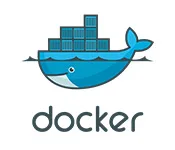I have a Docker container which has crashed due to a bug in the containerized application.
The restart policy was set to unless-stopped, which was causing the container to start, immediatly crash, and then restart again.
I changes the restart policy using docker container update --restart=no <container-name>.
I would like to download (copy) the log file from the container to the host machine so that I can inspect it to find out what went wrong.
If the container were running, I would simply be able to run docker exec -it <container-name> bash to start a bash session within the container. I would then be able to navigate the file system, find the log file, and either inspect it within the container or copy it from the container with docker cp.
However, the container is not running, and cannot be started because it will immediatly crash.
What are my options in this situation?

 Question posted in
Question posted in 

3
Answers
a) In your dockerfile, you could change your entrypoint to:
b) Or
Commit the stopped container:
Start/run with a different entry point:
c) Or you could try docker debug: https://docs.docker.com/reference/cli/docker/debug/
There are multiple solutions for that:
docker logs CONTAINERshows what was going on inside of the container.change the entry point to
shorbashand debug it:Replace
path/to/logfilewith the actual path to the log file inside the container andpath/to/host/directorywith the destination on your host machine.Run the image by:
json-filelog driver. For container IDTo copy or view logs: